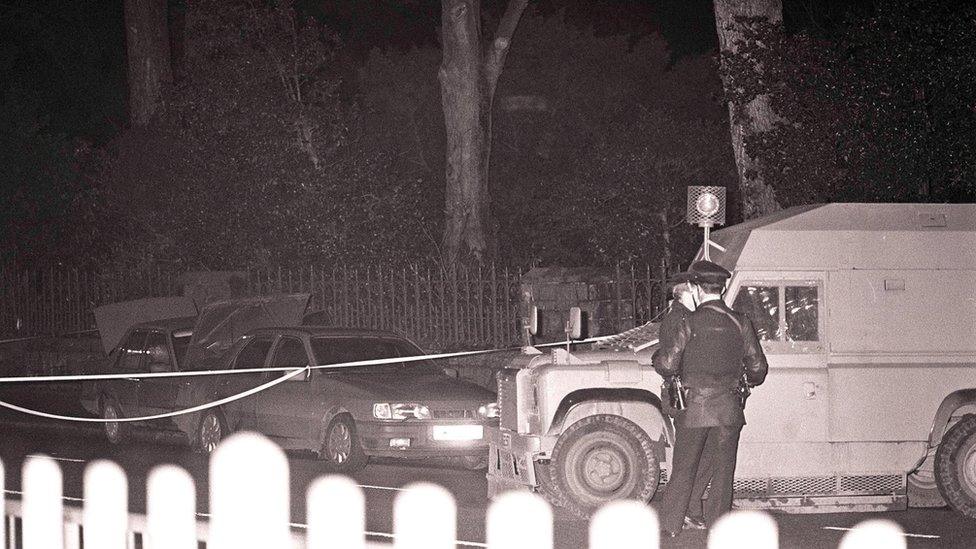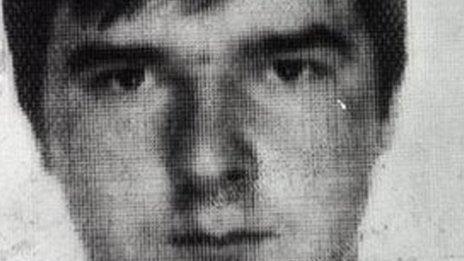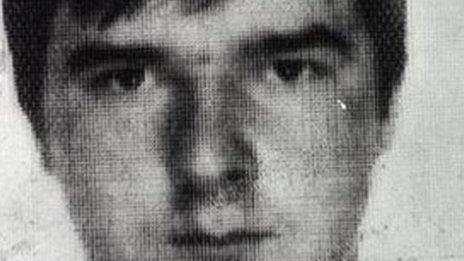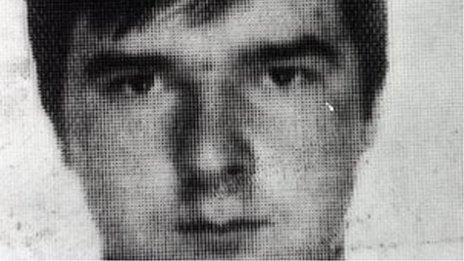Pearse Jordan: IRA man's family fails in new legal bid
- Published

Pearse Jordan, 22, was shot by police on the Falls Road in west Belfast in 1992
The mother of an IRA man shot dead by police has failed in a new legal bid to have an inquest verdict quashed.
Pearse Jordan was shot as he ran from a stolen car in west Belfast in 1992.
His mother Teresa claimed the coroner was wrong in finding it impossible to determine with certainty what happened.
But Court of Appeal judges rejected arguments that a failure to decide on central issues over the lawfulness of the shooting amounted to an abdication of responsibility.
Lord Justice Stephens said: "We are satisfied that the coroner demonstrated that he had striven hard to make a finding about the various issues and that he had explained the basis for his conclusion that it was not possible for him to do so."
The ruling represents a further blow for the family's attempts to secure another examination into the circumstances surrounding a shooting they believe was unjustified.
Jordan's death was one of several high-profile cases in Northern Ireland involving allegations the RUC were involved in shoot-to-kill incidents.
The 22-year-old had been driving a hijacked car stopped by police in an anti-terrorist operation in November 1992.

The 22-year-old had been running away from a stolen car he had been driving
He was shot after getting out on the Falls Road and trying to run away, unarmed.
In November 2016, the coroner overseeing a fresh inquest into the death said he was not convinced either by family claims that Jordan was gunned down in cold blood, or by police assertions that the RUC sergeant who opened fire acted in self-defence.
He held that the state had failed to prove the use of lethal force was lawful, but concluded that the precise circumstances of how the IRA man met his death remain unknown.
Mrs Jordan's lawyers claimed the disputed issues of fact should have been resolved in the evidence.
Ballistic evidence was disregarded without evaluation or explanation, along with an alleged failure to apply the identified standard of proof to issues in the case, they contend.
Mrs Jordan was seeking a declaration that the inquest was unfair, unlawful and in breach of the European Convention on Human Rights.
'Third possible outcome'
Last year, the High Court dismissed her case after counsel for the coroner insisted he had been best placed to reach conclusions about the facts and assess the credibility of witnesses during 16 days of evidence.
Appealing that ruling, her lawyers insisted there had been a legal obligation to make every effort to arrive at a conclusion.
They submitted that the reasons given by the coroner for his failure to reach a conclusion were insufficient.
However, the Court of Appeal held that there was a positive obligation to consider the "third possible outcome" of being unsure about what exactly occurred - provided reasons were given for being undecided.
Dismissing the case, Lord Justice Stephens confirmed: "We consider that there is no arguable case that he abdicated his duty in the conduct of this inquest."
- Published31 January 2014

- Published21 January 2014

- Published6 January 2014

- Published29 October 2012
